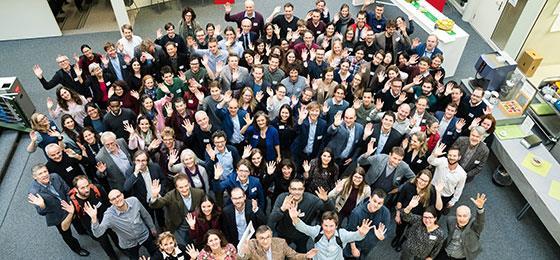3rd programme conference attracts high attendance
12.03.2020
The third NRP 73 programme took place at Centre Loewenberg on the outskirts of Murten on 13 and 14 February 2020. Some 120 researchers, Steering Committee and Sounding Board members added to their sustainable economy-related knowledge base and identified the key scientific findings for publication as of mid-2020.
The conference started with a fast-paced Pecha Kucha presentation, in which the four project leaders who joined the programme during 2019 profiled their research projects.
Slam poet Patti Basler then delivered her first “instant round-up”, which provided a stimulating transition to the poster session, where participants discussed initial results and the opportunities and challenges associated with a sustainable economy. With the right mix of policy instruments, for example, Switzerland can gain a significant competitive lead, attract unsettled investors and secure a first-mover advantage. In addition, the researchers reported that there has been a tendency to neglect social fairness in the sustainable development up to now, something that bears the risk of inequalities, and that the circular economy does not necessarily have to be sustainable in itself.
Furthermore, the best posters in three different categories were awarded a prize of 2,000 francs each. The prize for best scientific quality went to Christopher Mutel’s group, who are investigating the size of footprints in supply chains and ways of reducing them. The prize for greatest significance for knowledge transfer went to Susanne Kytzia’s group. An interactive simulation gave participants the chance to run through various scenarios for the construction industry. Jan Schmitz’s team won the prize for best presentation. The simplicity of the poster and its informal “be different” graphics made it an eye-catching way of highlighting the potential of nudging small and medium-sized enterprises.
The results, their relevance and the opportunities and challenges associated with a sustainable economy will be published at the end of May or early June in the NRP 73 interim summary and promoted in a communication campaign and at the SDSN conference 2020 on 2 July.
Patti Basler concluded proceedings by addressing certain rather uncomfortable truths and summing up the day’s events in her delightfully satirical style. Referring to the 29 research projects, she closed the day by saying “So today, we filled in the gaps, how to save the world in 29 steps”.
